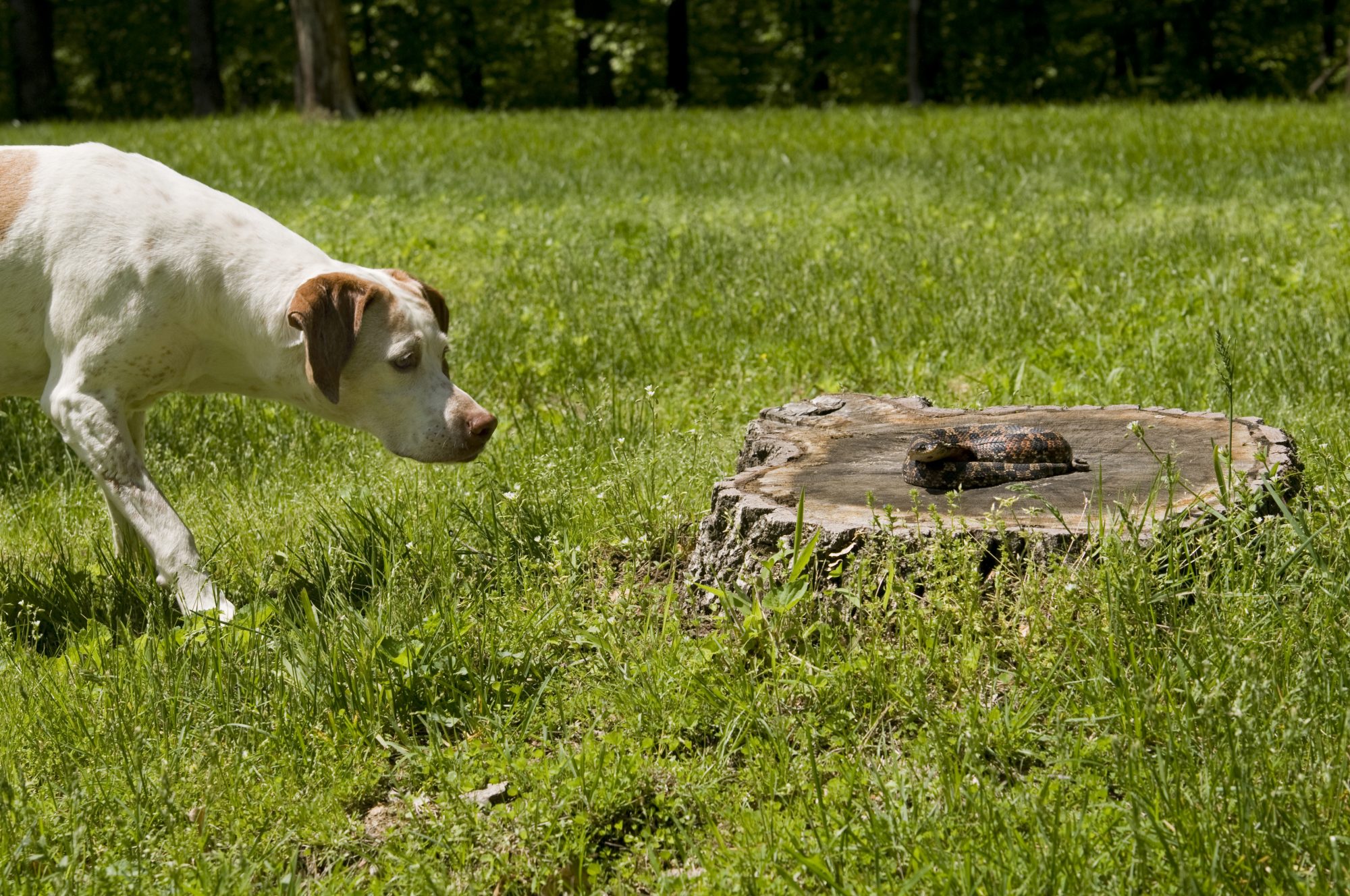Snake Safety and Your Pets: What You Need To Know

You’ve veered from the hiking trail. There’s no one around, so you let them off the leash. There may not be any people around, but there could be poisonous snakes ready to strike and bite your pet. You hear your excited dog rushing through the brush and then you hear a yelp. Has your pet been bitten by a venomous snake? Our veterinary staff is here to help!
Which Snakes Are Venomous Snakes?
In California, there are thirty-three varieties of snakes but only 6 are venomous. Those snakes are all a type of rattlesnake, which are easy to identify by the rattles on their tails. There is only one, the Northern Pacific Rattlesnake, that inhabits El Dorado Hills.
The Northern Pacific Rattlesnake
- Adults can grow to over 5 feet in length
- They hibernate November through February
- They are most active in spring, during the early morning and late afternoon hours
During this rattler’s active times, it’s best to leash your pets and avoid areas with tall grass and brush.
What Can I Do If My Pet Gets Bit?
If your pet has been bitten by a snake, it is important to act quickly. The following can help you avoid serious health issues:
- Don’t waste time trying to kill the snake.
- Do not try to suck the venom from your pet. It won’t work, and you’ll waste valuable time.
- Position your pet so the bite area is below their heart if possible.
- Secure your pet to slow their movements to prevent the rapid spread of venom.
- Get your pet to the vet as quickly and safely as you can.
- Call us at (916) 939‑1705 to let us know that you’re on your way!
Snake venom can do a lot of damage to your pet. A delayed medical response can be fatal. The veterinarians at MarketPlace Veterinary Hospital are here to support pet wellness. Ask us about emergency treatments you can safely apply before you reach us in an emergency.
What Is the Treatment for My Pet After a Snake Bite?
After a quick examination of the affected area, it’s likely that your pet will receive IV fluids since the venom will rapidly dehydrate your animal. They may be treated for shock. We will take blood samples to learn the extent of the effects of the snake bite.
We will administer antivenom to save your pet’s life and they will be kept for observation for a minimum of twelve hours.
How Can I Keep My Pet Safe from Snakes?
The best way to avoid snake bites is to learn how to keep your pets safe from snakes.
When on a walk outside:
- Stay on pavement or pathways.
- Keep your dogs and cats on a leash, do not let your pets run free.
- Avoid brush, grassy, or rocky areas.
- Never let your dog investigate a dead snake. Deadly venom could still be active.
Remember, you’re out for a walk, not a sniff-fest! Even though your dog would love to smell everything around it, there could be danger lurking. Stick to the path to keep your pet safe.
Around the yard:
- Keep yard grass short.
- Remove rock piles—they may make a nice landscape feature, but they make an even better shelter for snakes.
- Store firewood away from the house or areas where your pets play.
- Clean up seed spills from bird feeders. Mice and voles and other rodents are attracted to the seed. Snakes eat rodents and will live near a plentiful food source.
If your pet is bitten by a snake take them immediately to the nearest veterinary hospital. The shortest time between a venomous bite and medical treatment could mean the best outcome for your pet. Talk to us at MarketPlace Veterinary Hospital during your next wellness visit about what to do if your pet is bitten by a snake!

